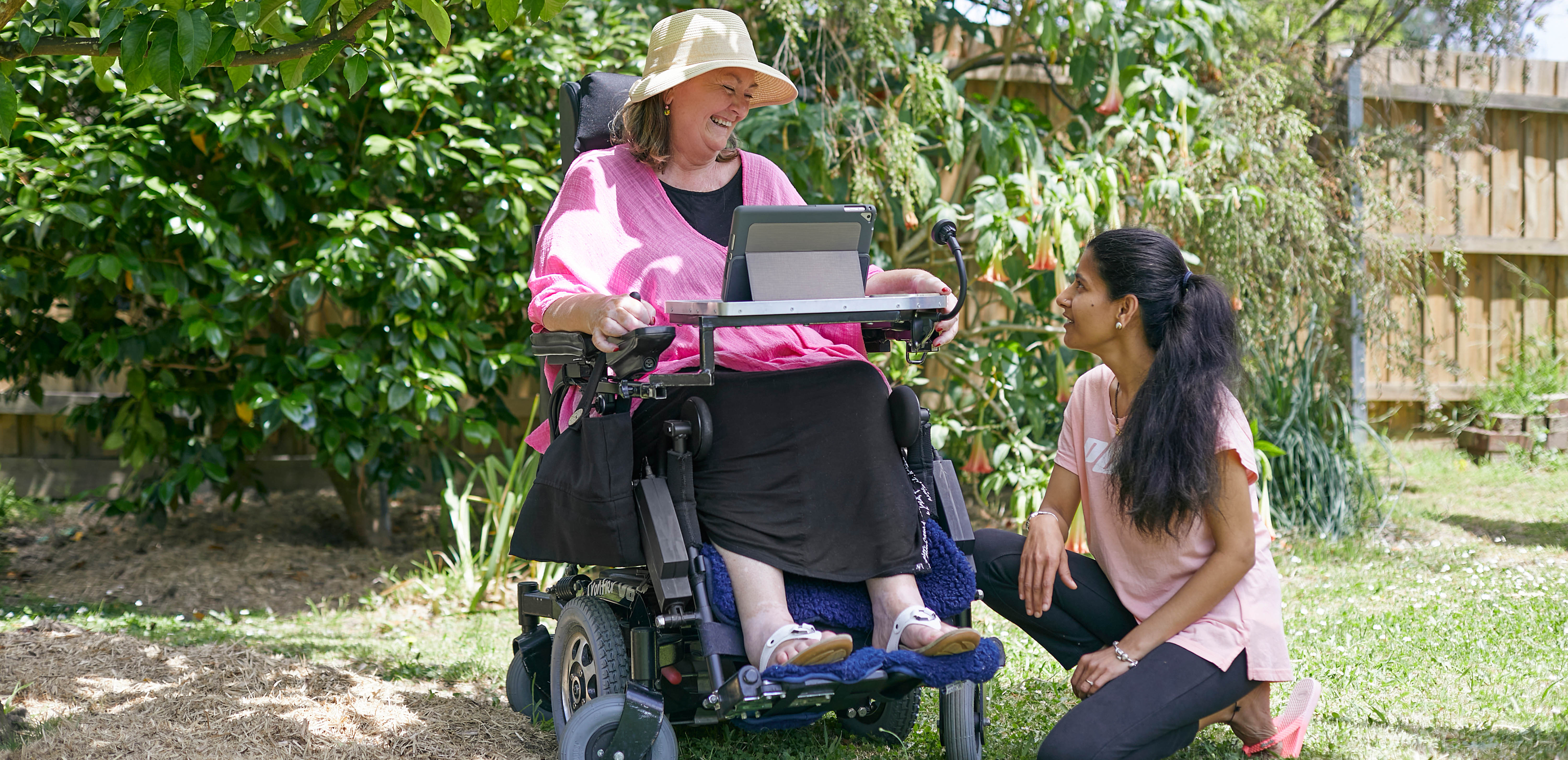Symptoms
There are many symptoms that could be positively linked to motor neurone disease (MND). But similar (or even identical) symptoms could also be linked to something else entirely. While we’ve pulled together a robust list of symptoms for you to review, they won’t cover everything.
The best way to find out if your symptoms are MND-related is to speak to your doctor who will begin the process of diagnosis. The sooner you’re able to get a diagnosis, the more services you are able to take advantage of.
What are the symptoms of MND?
The symptoms and the rate of progression of MND vary significantly from person to person. Your journey – or the journey of your loved one – will be absolutely unique to you (or them). But understanding the symptoms can help you manage them in a way that gives you the best quality of life at each stage of your journey.
What to expect
Early symptoms may be mild and could include:
- Stumbling due to weakness of the leg muscles
- Difficulty holding objects caused by weakness of the hand muscles
- Slurring of speech or swallowing difficulties due to weakness of the tongue and throat muscles
- Cramps and muscle twitching
As the disease progresses symptoms may include:
- Breathing difficulties from decreased lung capacity caused by muscle weakness
- Fatigue caused by muscle exhaustion, decreased lung capacity, metabolic changes, weight loss and reduced food intake
- Insomnia caused by discomfort, pain from stiff joints and muscles, excessive saliva, dry mouth or breathing problems
- Mild changes in cognitive skills and processes and/or behavioural change
- Fronto-temporal cognitive changes (a type of dementia), which is prominent in 5-10% of MND cases
- Excessive laughing or crying due to damage to the upper motor neurones
- Some pain or discomfort
Diagnosis
MND can be difficult to diagnose because there is not a single test to detect it and the initial symptoms can be very similar to other conditions. Instead, it’s a process of elimination and a review of ongoing symptoms that will allow your doctors to arrive at an MND diagnosis.
See more information about diagnosis and tests.
You're not alone
Whether you’re looking to understand symptoms, have just been diagnosed with MND or are a carer, loved one or health care worker, we’re here to help you with your MND journey.
Call our free helpline service 1800 777 175 or REQUEST A CALL BACK
GET MND SUPPORT
JUST DIAGNOSED
